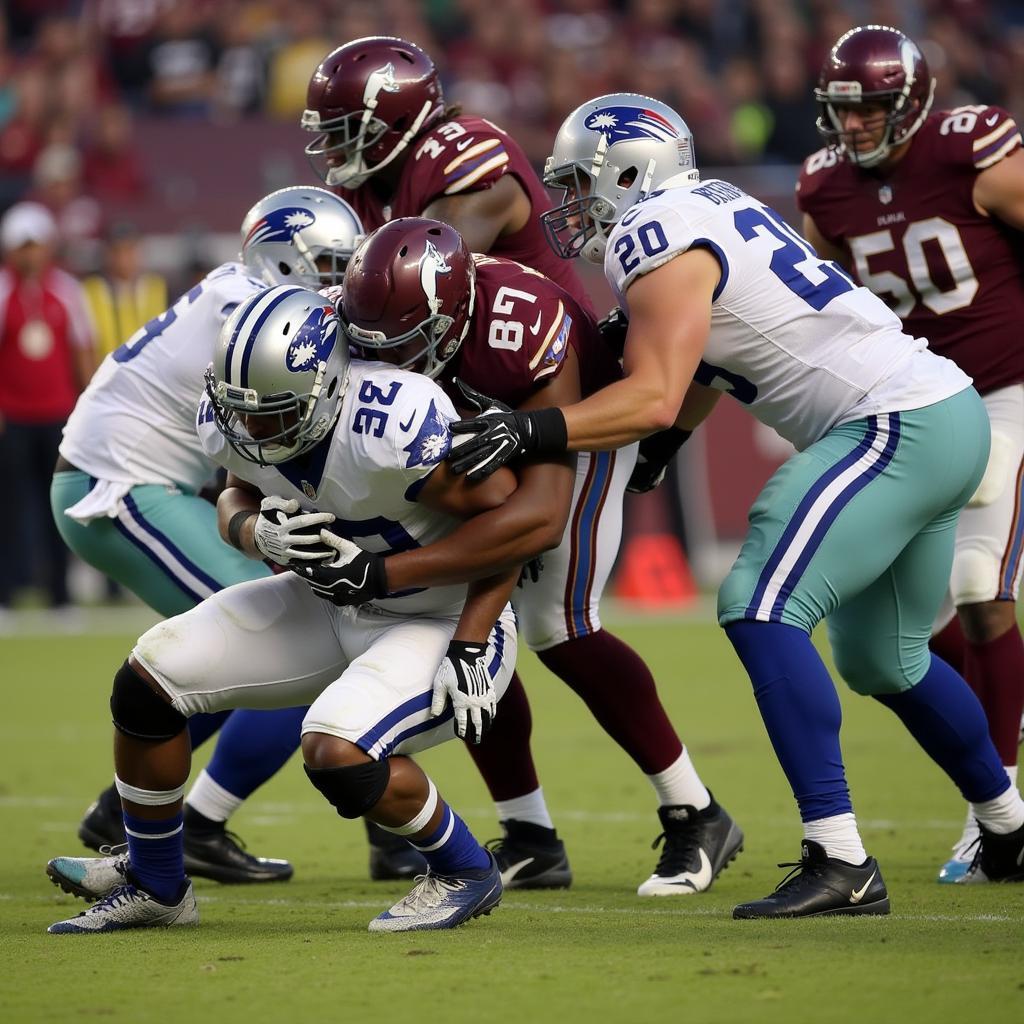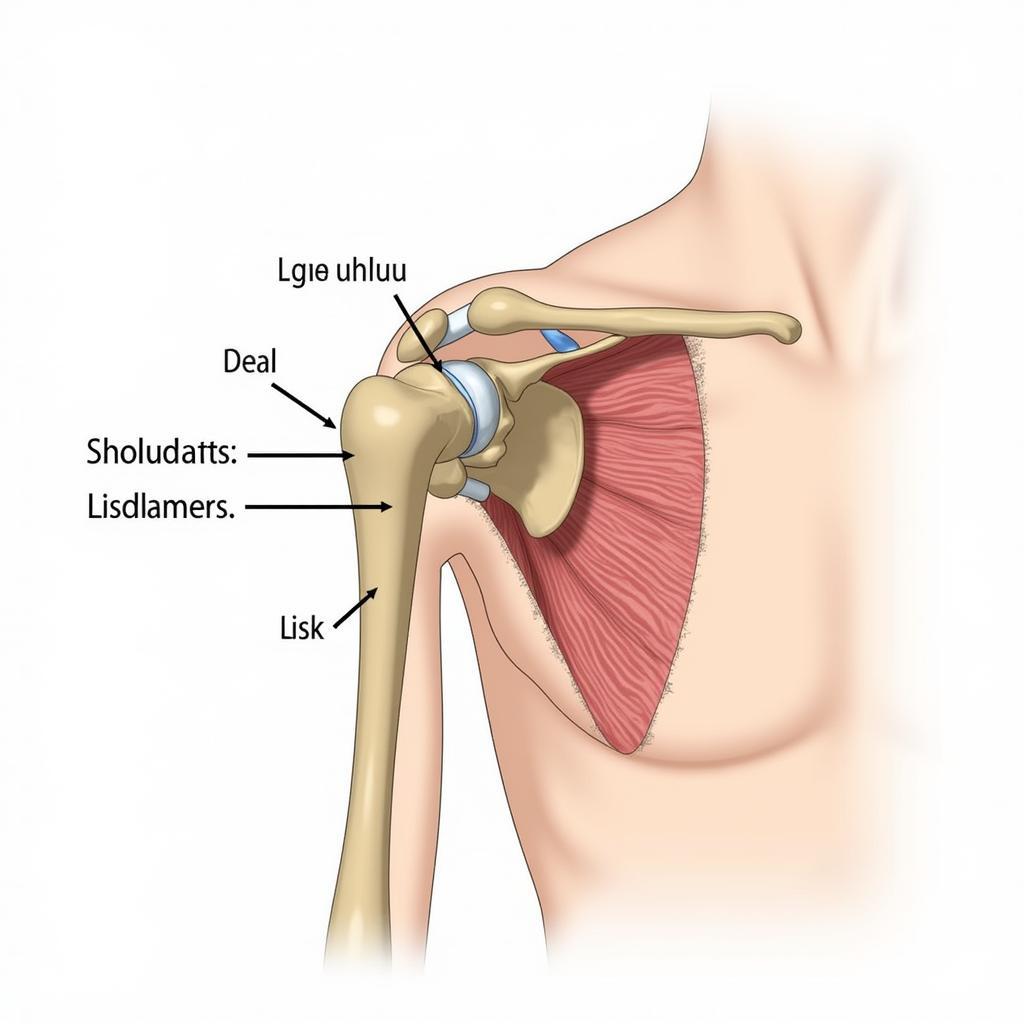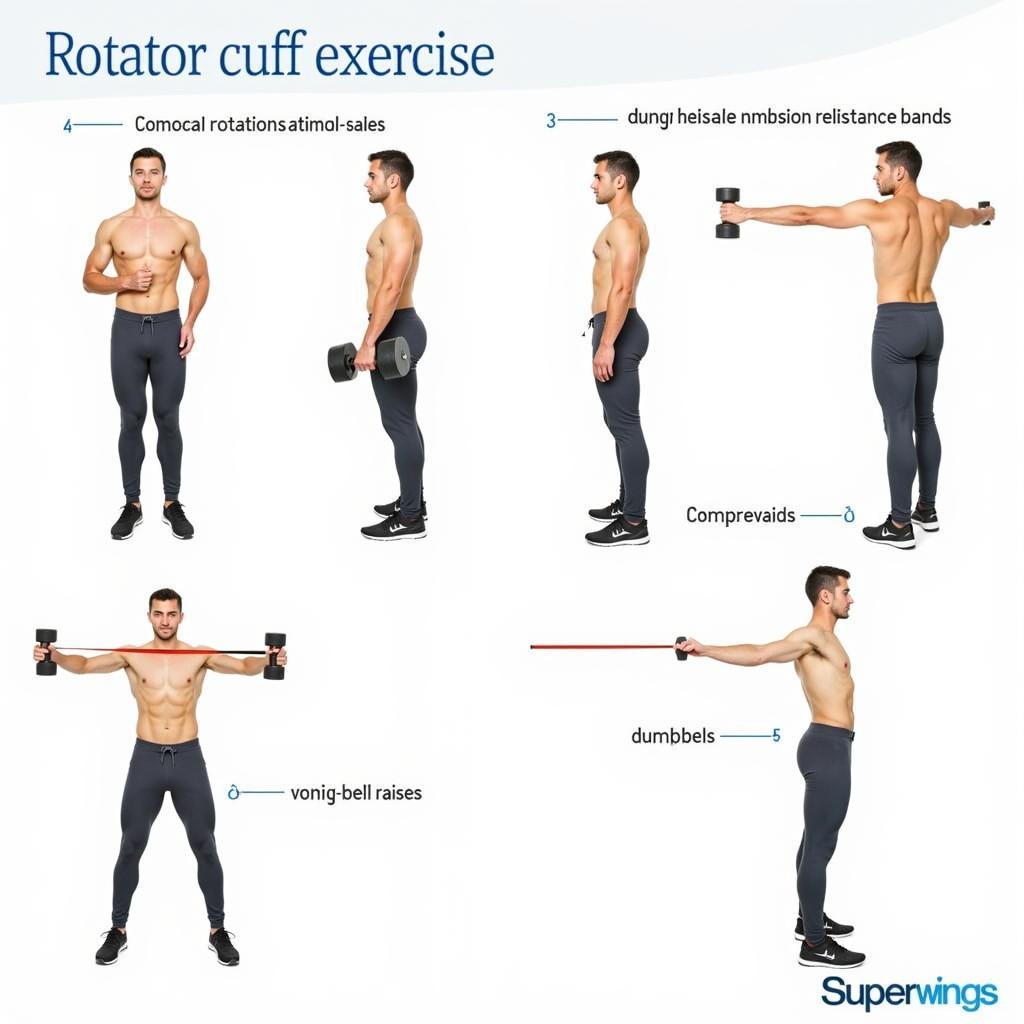Shoulder Dislocation in Football: A Player’s Perspective
October 31, 2024Shoulder dislocations are a serious concern in football, impacting players at all levels. They occur when the head of the humerus (upper arm bone) pops out of the shoulder socket. This can be a painful and debilitating injury, often requiring extensive rehabilitation. Understanding the causes, symptoms, and treatment options is crucial for both players and fans.
Causes of Shoulder Dislocations in Football
Shoulder dislocations in football are typically caused by a direct blow to the shoulder or a fall onto an outstretched arm. The high-impact nature of tackles, blocks, and falls during games makes players particularly vulnerable. Certain positions, like quarterbacks and receivers, might be at even greater risk due to the nature of their movements and the likelihood of forceful contact. Poor tackling technique or improper landing after a jump can also increase the risk.
 Football Player Suffering Shoulder Dislocation During a Tackle
Football Player Suffering Shoulder Dislocation During a Tackle
Other factors, such as previous shoulder injuries, ligament laxity, and anatomical variations, can predispose individuals to dislocations. A history of shoulder dislocations significantly increases the likelihood of future incidents. Strengthening the surrounding muscles and practicing proper falling techniques can help mitigate these risks.
Recognizing the Symptoms of a Dislocated Shoulder
A dislocated shoulder presents with several distinct symptoms. Intense pain in the shoulder and upper arm is often the first noticeable sign. The shoulder may appear visibly deformed, with a noticeable bump or hollow where the joint is displaced. Limited range of motion and an inability to move the arm are common. Swelling, bruising, and numbness or tingling in the arm or hand may also occur.
 Anatomy of a Dislocated Shoulder
Anatomy of a Dislocated Shoulder
If you suspect a shoulder dislocation, seek immediate medical attention. Do not attempt to reposition the joint yourself, as this can cause further damage. Immobilizing the arm and applying ice can help manage pain and swelling until professional help is available.
Treatment and Recovery from Shoulder Dislocation
Treatment for a dislocated shoulder typically involves relocating the humerus back into the socket. This procedure, performed by a medical professional, is often followed by immobilization using a sling or brace. The duration of immobilization depends on the severity of the injury and the individual’s healing progress.
Once the initial pain and swelling subside, rehabilitation begins. Physical therapy focuses on restoring range of motion, strengthening the surrounding muscles, and improving joint stability. The recovery process can take several months, and returning to sports too soon can increase the risk of re-injury.
How Can Players Prevent Shoulder Dislocations?
Preventing shoulder dislocations involves a combination of strategies. Proper conditioning and strengthening exercises targeting the shoulder girdle muscles are crucial. Learning and practicing safe tackling and falling techniques can also minimize the risk of injury during gameplay. Wearing appropriate protective equipment, such as shoulder pads, can offer additional support and protection.
 Exercises for Shoulder Stability and Strength
Exercises for Shoulder Stability and Strength
Conclusion
Shoulder dislocations are a significant injury concern in football. Understanding the causes, symptoms, and treatment options is vital for players at all levels. By prioritizing prevention through proper conditioning, safe playing techniques, and appropriate protective gear, players can minimize their risk and protect their long-term athletic careers. Remember, seeking immediate medical attention following a suspected dislocation is crucial for a proper diagnosis and effective treatment.
FAQ
-
How long does it take to recover from a dislocated shoulder? Recovery time varies, but typically takes several months.
-
Can a dislocated shoulder heal without surgery? Many dislocations heal without surgery, but severe cases may require it.
-
What are the long-term effects of a dislocated shoulder? Recurrent dislocations and instability are possible long-term complications.
-
How can I strengthen my shoulders to prevent dislocations? Targeted exercises and proper conditioning are key for shoulder stability.
-
What should I do if I think I have dislocated my shoulder? Seek immediate medical attention and avoid moving the injured arm.
-
What is the difference between a separation and a dislocation? A separation involves ligament damage, while a dislocation involves the bone popping out of the socket.
-
Are certain football positions more susceptible to shoulder dislocations? Yes, positions involving frequent tackles or falls are at higher risk.
Related Topics on “Cầu thủ Haaland”
- Preventing common football injuries
- Strength training for football players
- Rehabilitation after sports injuries
Need support? Contact us: Phone: 0396443476, Email: [email protected] or visit us at: 23 Tháng 3, Đắk Nia, Gia Nghĩa, Đắk Nông, Việt Nam. We have a 24/7 customer service team.